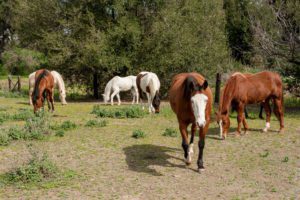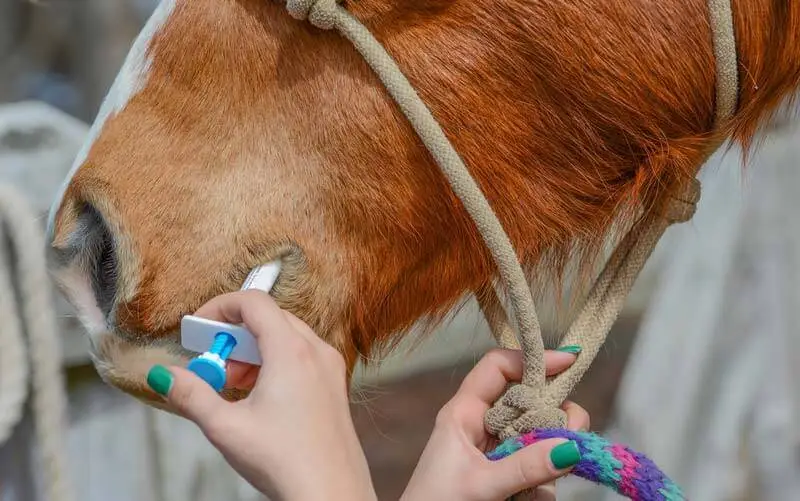How do I prevent sand colic?
Sand colic occurs when high levels of sand and dirt are ingested and accumulate in the horse’s digestive tract. However, even small amounts of sand can irritate the gut wall so, by far, prevention is the best way to avoid the dangerous consequences of sand colic.
Here are a few simple ways to prevent sand colic in your horse.
Five ways to prevent sand colic
- Don’t feed directly off the ground
When consuming hay and grain off the ground, your horse can ingest sand and dirt, particularly when grazing on loose, sandy soil.
For all horses, and especially those in high risk areas, use a feeder to prevent sand ingestion. Concrete and rubber matting are also beneficial if your horse spills their feed. Try to avoid feeding your horse in sandy environments, like your riding arena.
- Provide plenty of water
When your horse is dehydrated, moisture is leached away from their digestive tract, allowing sand and dirt to accumulate.
Every horse should have access to fresh, clean drinking water throughout the day and night. Water and forage, including hay and grass, will keep your horse hydrated, which promotes proper digestion and movement of intestinal contents.
- Forage – the foundation of a good diet
In nature, horses spend up to 18 hours per day grazing, which has immense benefits for their health and wellbeing.
A forage-first diet is essential for every horse, including performance horses. Providing your horse with free-choice forage, such as hay, will support digestive function and prevent sand accumulation. Use a slow feeder or hay net for a longer lasting ration.
- Manage your pastures wisely
Over-grazed pastures and sandy soils place your horse at greater risk of sand colic.
Pasture management is key to sustainable horse keeping. Rotating pastures regularly will encourage healthy grass growth and prevent over-grazing. If your horse is kept on pasture that is quite short, supplement their grazing with hay to reduce the burden.
- Consider adding psyllium
Finally, feeding the high-fibre dietary laxative psyllium can aid the movement of sand from the digestive tract of horses at risk of sand colic.
Read the label carefully and follow dosage instructions. Only use psyllium on an as needed basis as studies have shown prolonged use is ineffective. We also recommend you consult your veterinarian or a qualified equine nutritionist for advice.




